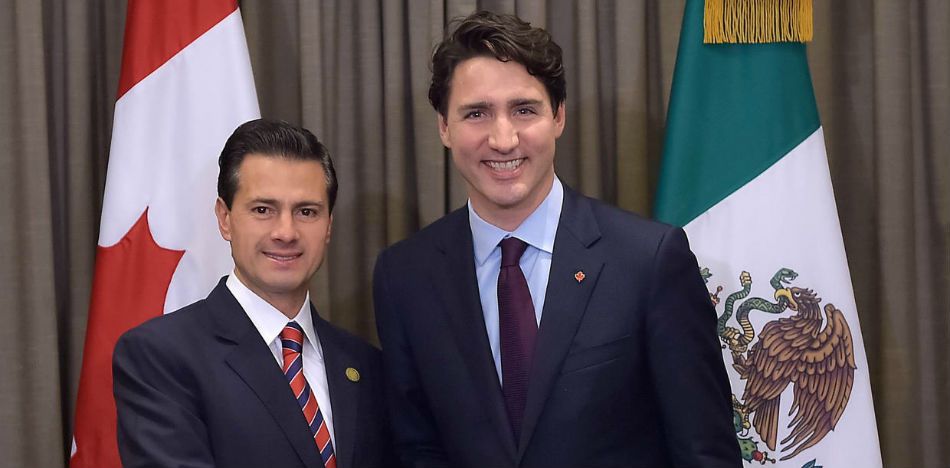
The Mexican government has urged its citizens not to panic after the unexpected victory of Republican Donald Trump, who during his campaign promised to deport millions of illegal immigrants, build a border wall between both countries, and modify or exit from the North American Free Trade Agreement (NAFTA), proposals that have caused considerably more panic in Mexico than in Canada.
The question that Mexicans are asking now is: “What’s Next?” President-elect Trump’s fiery declarations make him an unpredictable figure, and much is still uncertain regarding his plans once in the White House.
- Read More: Mexico’s Pena Nieto Prepares Team to Negotiate with Trump
- Read More: Entrepreneurs in Mexico and the US Fight to Save NAFTA
“There is a difference, and there has always been, between campaign rhetoric and the person’s actual intentions once in office. Each administration represents a change and these represent challenges and we are sure that what we are facing right now, challenges that in turn represent opportunities,” said José Paulo Carreno King, Mexico’s undersecretary of foreign affairs.
However for Campbell Clark, journalist and chief of the policy section of the Canadian newspaper The Globe and Mail, the opportunities mentioned by Carreno King are an “illusion.”
In his opinion column, Campbell points out that the governments of Mexico and Canada are in a state of anxiety, which could be harmful, since there is definitely a reason to worry: the modification of trade agreements that Trump could undertake, which would mean a setback for the economies of both nations. Such a situation could leave Mexico without one of its main allies: Canada.
“There are already many who think that Canada should do without Mexico as an ally in the NAFTA negotiations. Both countries have joined several times in trilateral trade negotiations to pressure common interests vis-à-vis the United States” suggested Conservative deputy, and former Commerce minister Ed Fast. Meanwhile, Campbell Clark argued last week that “Trump’s trade rhetoric is aimed at Mexico, so Canada must realize that its interests now lie in bilateral talks with the United States.”
“The interests of Mexico and Canada are no longer aligned,” said Congressman Fast. However, Carreno says that this makes little sense, since the bilateral relationship between the two countries “is going through the best phase of recent history” so the trilateral relationship has been important.
Campbell acknowledges in his text published on Wednesday that neither Canada nor Mexico really has close ties with anyone in Trump’s administration. Both governments are already having talks with Trump’s transition team, but he is currently more focused on cabinet appointments. Both countries can only resort to “being more vocal” with respect to the commercial value and benefits of the North American trade bloc.
Another aspect that the Canadian journalist says must be noted is the decision of the Canadian government to eliminate visa requirements for Mexicans, which will take effect on December 1. The move has been considered a gesture of goodwill between the two administrations.
But this could be reversed, according to Immigration Minister John McCallum, as it is feared that after Trump’s promise to deport millions of undocumented immigrants, the number of Mexicans considering emigrating to Canada will increase sharply.
Regarding this, Carreno said: “there are many assumptions, let us now focus on the facts” and added that “there are always fearful people when the status quo changes and that is what is happening now.”
Source: The Globe and Mail
 Versión Español
Versión Español












